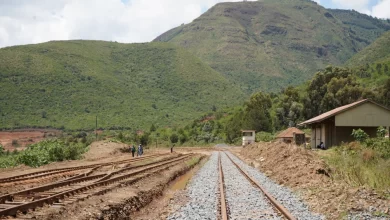From Embusel to Amboseli: The Maasai Story Behind Kenya’s Iconic Park
The name itself reflects both the salty soil and the enduring bond between humans and wildlife that has defined the region for generations

Derived from the Maasai word Embusel, meaning “fine salty dust,” Amboseli truly lives up to its name a land of rich wildlife, fertile plains, and harmony between people and nature
Locals describe Amboseli as a place of “tasty waters and lush vegetation,” where Maasai culture, livestock, and tourism coexist peacefully with herds of elephants
The name itself reflects both the salty soil and the enduring bond between humans and wildlife that has defined the region for generations
“I heard someone ask what Amboseli means. It’s the white dust that tastes like salt,” said resident Margaret Stoni during the Maa Cultural and Tourism Festival. “In the past, we didn’t need to buy mineral salt for our cows. Once they licked embusel, it was enough”
For Joshua Barneet, another resident, the two names Embusel and Amboseli are one and the same. “It’s like saying President William or President Ruto,” he joked

A Deep Bond Between People and Elephants
Amboseli is famous for its majestic, big-tusked elephants. Locals have grown so familiar with them that many can identify specific animals and even distinguish their family groups. “Some elephants are known for their calm nature, others for being wild and stubborn,” said Barneet
A Historic Return to the People
This year’s Maa Festival marked a special milestone the official handover of Amboseli National Park from the national government to the people of Kajiado County. Maasai Council of Elders Vice Chairman Richard Oloitiptip said the event was a celebration of both culture and justice
“We thank President William Ruto for keeping his promise and returning Amboseli to the community. This decision restores our dignity,” he said
President Ruto, in his speech, acknowledged the park’s difficult history. “While the intention behind the park’s gazettement and UNESCO recognition was noble, it also brought pain and loss to the Maa community,” he said. “Today, justice prevails”
Kajiado Governor Joseph Ole Lenku hailed the move as a “game-changer,” emphasizing that locals will now directly benefit from tourism and conservation
Also read : Ruto Questions Tanzania’s 96% Election Win, Says ‘Such Numbers Don’t Exist in a Democracy’
“This is our heritage,” he said, adding that a semi-autonomous body will manage the park to balance wildlife protection, environmental sustainability, and community livelihoods.
Under the new arrangement, Amboseli’s income averaging Ksh. 1.5 billion annually will be shared between the national and county governments over a three-year transition. From July 2026, revenue will gradually shift, with Kajiado County taking full control by 2028
Amboseli National Park, gazetted in 1974 and declared a UNESCO Biosphere Reserve in 1991, remains a global model for sustainable conservation
But now, for the first time in over a century, it is also a story of cultural restoration where Embusel, the fine salty dust, once again belongs to the people who named it
Writer : Mweru Mbugua





